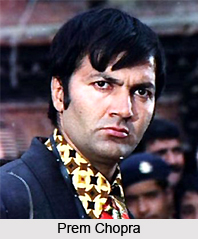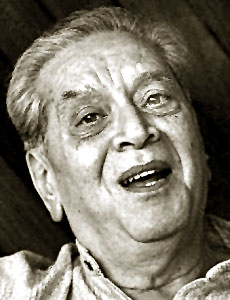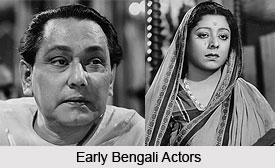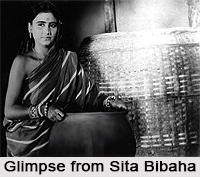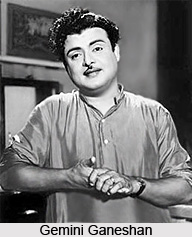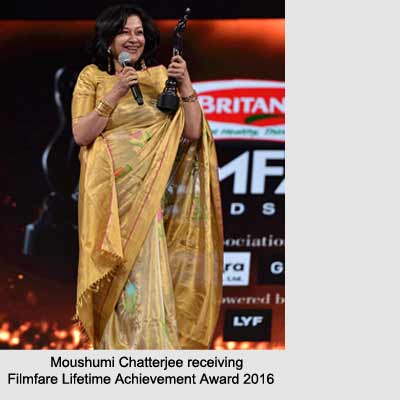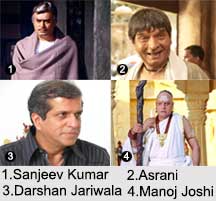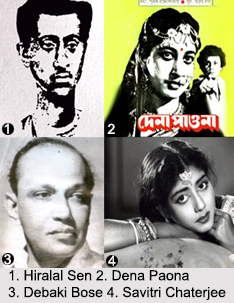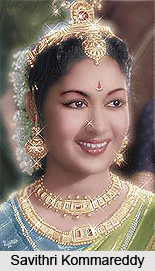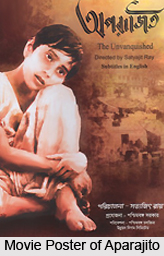 Aparajito (1956) is directed by the maestro Satyajit Ray and its star cast includes Kanu Banerjee as Harihar; Karuna Banerjee as Sarbajaya; Pinaki Sen Gupta as the little Apu; Smaran Ghosal is the adolescent Apu; Ramani Sen Gupta as Bhabataran, old uncle; Charaprakash Ghosh and Subodh Ganguly.
Aparajito (1956) is directed by the maestro Satyajit Ray and its star cast includes Kanu Banerjee as Harihar; Karuna Banerjee as Sarbajaya; Pinaki Sen Gupta as the little Apu; Smaran Ghosal is the adolescent Apu; Ramani Sen Gupta as Bhabataran, old uncle; Charaprakash Ghosh and Subodh Ganguly.
Aparajito is a sequel to Pather Panchali by Satyajit Ray. In this part the director takes up from where he has left. As the film opens Harihar, Sarbajaya and their ten-year-old son Apu are seen to reside in Varanasi, the temple city. Harihar supports his family by earning a trifle sum of money by reciting religious scriptures. Aparajito basically focuses upon the growing up years of Apu. The dilemma that he faces and how he slowly grows apart from his mother, Sarbajaya. Aparajito beautifully explores the mother-son relationship.
As the plot of Aparajito proceeds Harihar falls ill and dies, leaving the mother and the son in an alien land to provide for themselves. Sarbajaya works as a maid to support the family but finally decides to return back to a village where their relative works as a priest. Apu too is introduced to this life and is expected to take up priesthood as his occupation. But the little Apu has other ambitions. He wants to go to school and convinces his mother to provide for his education. Although Sarbajaya faces hardships to make both ends meet she agrees to Apu`s desires, as he would at least study then.
A 16 year old Apu wins a scholarship and leaves for Kolkata to pursue further studies. Sarbajaya is heartbroken but she gives in. her health deteriorates and she is pushed to depression because of her lonesomeness. On the other hand Apu becomes busy with himself in the city. He studies during the day and works in a printing press at night. His involvement with his education and work further distances him from Sarbajaya, his mother. His visits to the village become less frequent and this emotional distance affects Sarbajaya badly.
Sarbajaya dies waiting for Apu. Her son comes back to an empty house and is aggrieved. He is suggested by the relatives to stay back and offered the livelihood of a priest. Apu rejects the offers and decides to return to Kolkata and leave the village forever. Thus Apu walks away from the village towards a new beginning in his life. Apu remains `aparajito` or unvanquished despite his afflictions and turns towards a new life.
Aparajito being a Satyajit Ray film is not overdone. There are two death sequences in the film and both have been brilliantly portrayed. Harihar is seen lying ill at dawn with Sarbajaya beside him. He asks weakly for `ganga,` the holy water from the river. Sarbajaya wakes up Apu and asks him to fetch the holy water. As Apu brings the water she pours it in his mouth. Harihar`s head drops back on the pillow. The shot shifts to a flock of pigeons flying away and swirling in the sky. Like the birds Harihar has been freed from the shackles of his wretched life.
In the scene where an ill Sarbajaya waits for Apu, she is shown waiting outside her house in the evening. She is sitting under a tree and a train is heard to pass by at a distance. But the mother does not react to its sound because she knows that Apu is not on the train. However she imagines his return and hears Apu calling her. As she pulls herself up to look for Apu all she encounters is a bunch of fireflies whirling by the pond.
Karuna Banerjee is superb as Apu`s mother. Her outstanding ability to underplay makes Sarbajaya a treat to watch in Aparajito. The pain and suffering of an ailing mother is beautifully portrayed by the lady. But the surprise package of Aparajito is Smaran Ghosal, the adolescent Apu. The mental conflict of the character is perfectly essayed by him. Pandit Ravi Shankar`s music heightened further the mood and feel of Aparajito.
After this Satyajit Ray directed the last part of Apu Trilogy, Apur Sansar. Aparajito won several international accolades. The awards that it received are:
| Golden Lion of St. Mark, Venice, 1957 | FIPRESCI Award, London, 1957 | Golden Laurel for Best Foreign Film of 1958-59, USA |
| Cinema Nuovo Award, Venice, 1957 | Best Film and Best Direction, San Francisco, 1958 | Selznik Golden Laurel, Berlin, 1960 |
| Critics Award, Venice, 1957 | International Critic` Award, San Francisco, 1958 | Bodil Award: Best Non-European Film of the Year, Denmark, 1967 |








